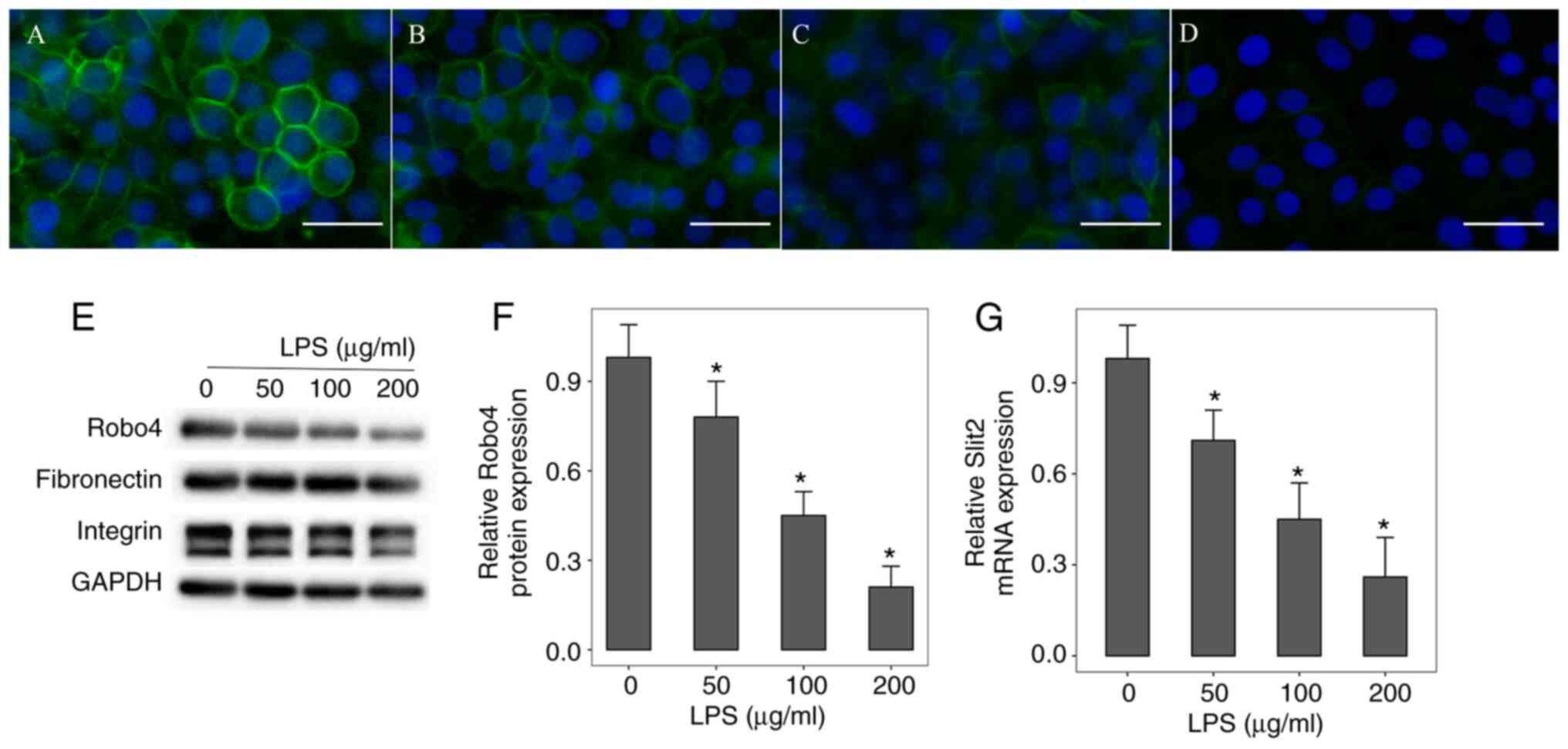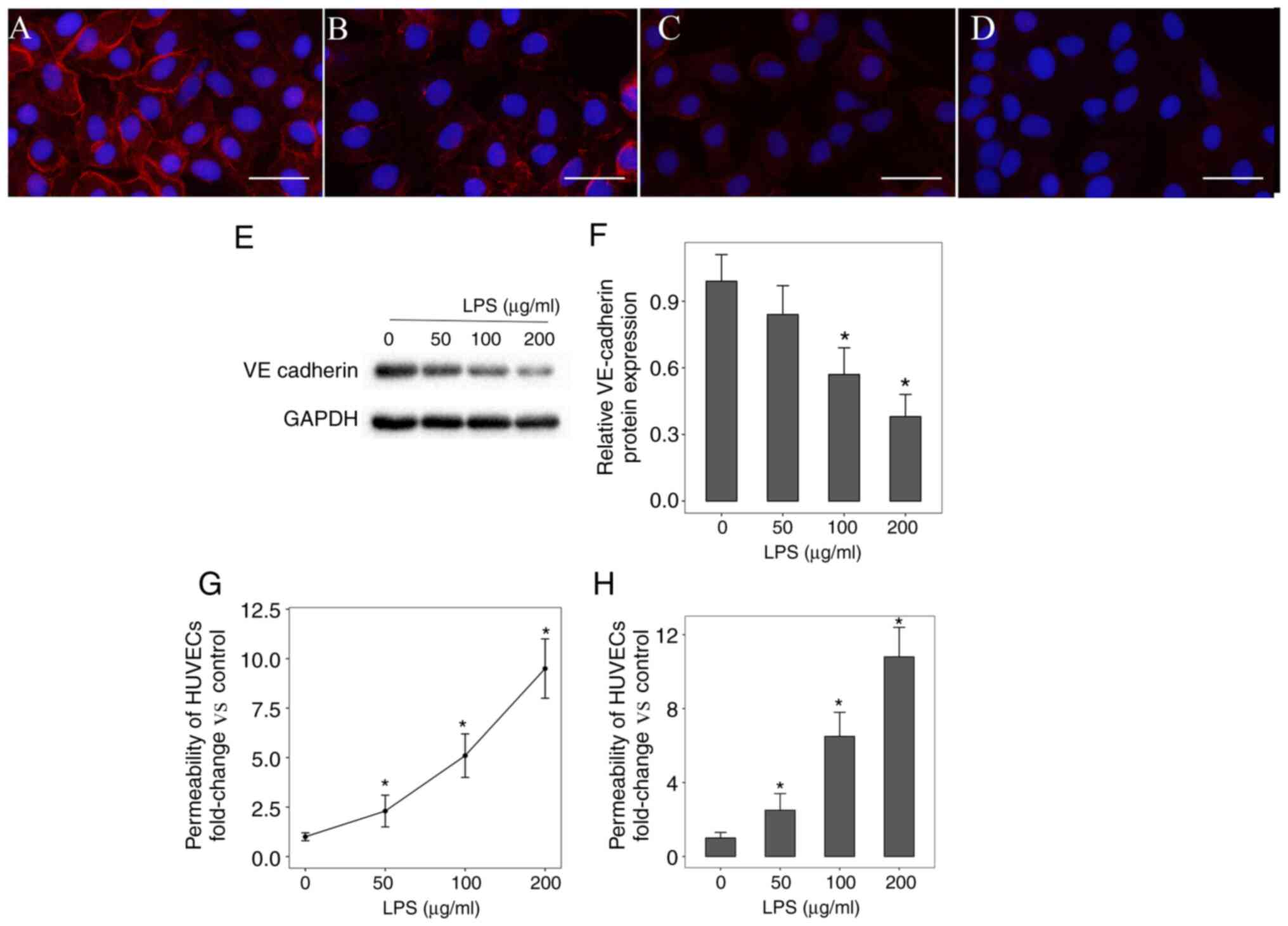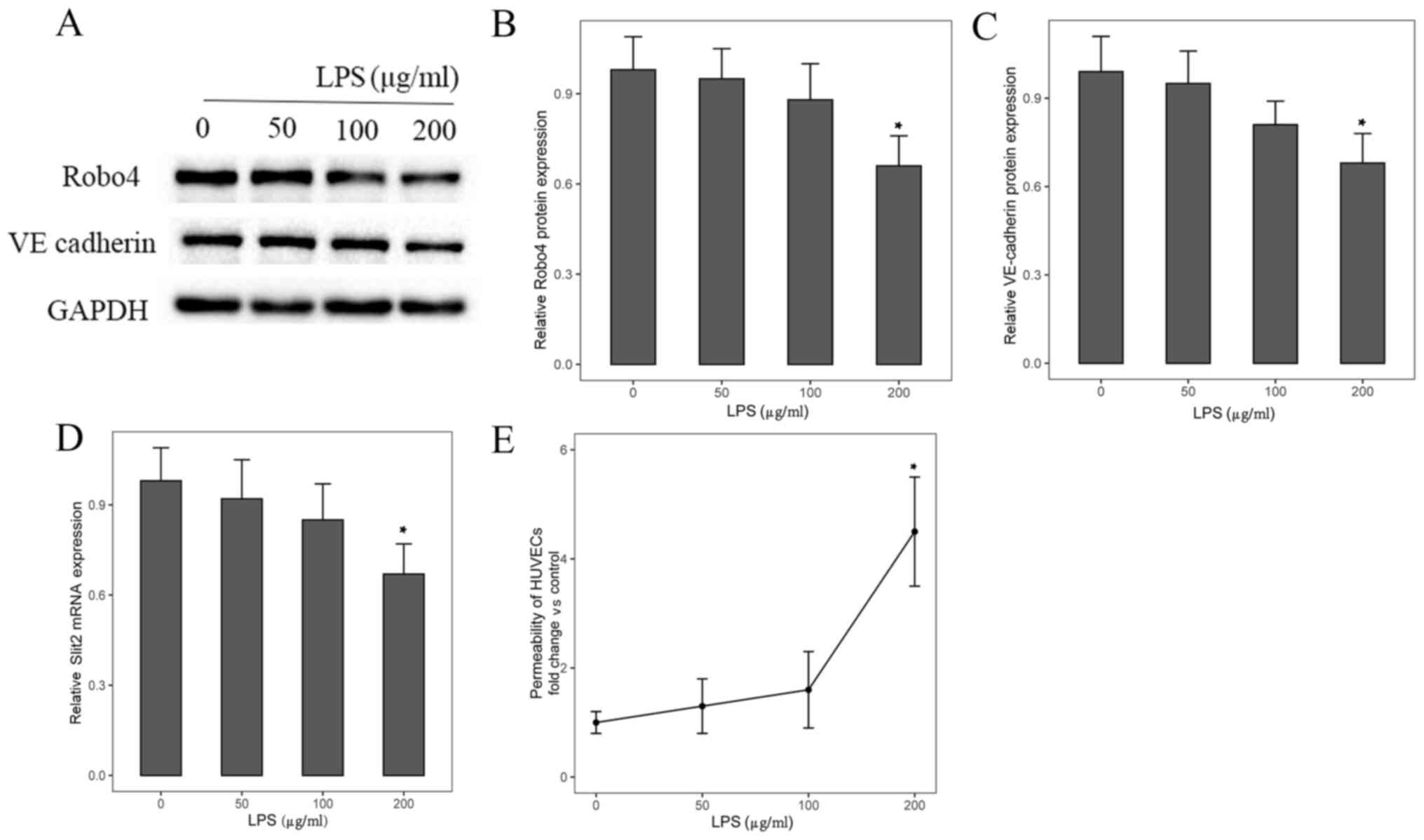|
1
|
Shankar-Hari M, Phillips GS, Levy ML,
Seymour CW, Liu VX, Deutschman CS, Angus DC, Rubenfeld GD and
Singer M: Sepsis Definitions Task Force: Developing a new
definition and assessing new clinical criteria for septic shock:
For the third international consensus definitions for sepsis and
septic shock (Sepsis-3). JAMA. 315:775–787. 2016.PubMed/NCBI View Article : Google Scholar
|
|
2
|
Weng J, Wu H, Xu Z, Xi H, Chen C, Chen D,
Gong Y, Hua Y and Wang Z: The role of propionic acid at diagnosis
predicts mortality in patients with septic shock. J Crit Care.
43:95–101. 2018.PubMed/NCBI View Article : Google Scholar
|
|
3
|
Cecconi M, Evans L, Levy M and Rhodes A:
Sepsis and septic shock. Lancet. 392:75–87. 2018.PubMed/NCBI View Article : Google Scholar
|
|
4
|
Lelubre C and Vincent JL: Mechanisms and
treatment of organ failure in sepsis. Nat Rev Nephrol. 14:417–427.
2018.PubMed/NCBI View Article : Google Scholar
|
|
5
|
Cross D, Drury R, Hill J and Pollard AJ:
Epigenetics in sepsis: Understanding its role in endothelial
dysfunction, immunosuppression, and potential therapeutics. Front
Immunol. 10(1363)2019.PubMed/NCBI View Article : Google Scholar
|
|
6
|
Ni J, Lin M, Jin Y, Li J, Guo Y, Zhou J,
Hong G, Zhao G and Lu Z: Gas6 attenuates sepsis-induced tight
junction injury and vascular endothelial hyperpermeability via the
Axl/NF-κB signaling pathway. Front Pharmacol.
10(662)2019.PubMed/NCBI View Article : Google Scholar
|
|
7
|
Gao S, Wake H, Gao Y, Wang D, Mori S, Liu
K, Teshigawara K, Takahashi H and Nishibori M: Histidine-rich
glycoprotein ameliorates endothelial barrier dysfunction through
regulation of NF-κB and MAPK signal pathway. Br J Pharmacol.
176:2808–2824. 2019.PubMed/NCBI View Article : Google Scholar
|
|
8
|
Martinez-Quinones P, Komic A, McCarthy CG,
Webb RC and Wenceslau CF: Targeting endothelial barrier dysfunction
caused by circulating bacterial and mitochondrial N-formyl peptides
with deformylase. Front Immunol. 10(1270)2019.PubMed/NCBI View Article : Google Scholar
|
|
9
|
Rothberg JM, Hartley DA, Walther Z and
Artavanis-Tsakonas S: Slit: An EGF-homologous locus of D.
Melanogaster involved in the development of the embryonic central
nervous system. Cell. 55:1047–1059. 1988.PubMed/NCBI View Article : Google Scholar
|
|
10
|
Mommersteeg MT, Andrews WD, Ypsilanti AR,
Zelina P, Yeh ML, Norden J, Kispert A, Chedotal A, Christoffels VM
and Parnavelas JG: Slit-roundabout signaling regulates the
development of the cardiac systemic venous return and pericardium.
Circ Res. 112:465–475. 2013.PubMed/NCBI View Article : Google Scholar
|
|
11
|
Fan X, Li Q, Pisarek-Horowitz A, Rasouly
HM, Wang X, Bonegio RG, Wang H, McLaughlin M, Mangos S, Kalluri R,
et al: Inhibitory effects of Robo2 on nephrin: A crosstalk between
positive and negative signals regulating podocyte structure. Cell
Rep. 2:52–61. 2012.PubMed/NCBI View Article : Google Scholar
|
|
12
|
Jiang Z, Liang G, Xiao Y, Qin T, Chen X,
Wu E, Ma Q and Wang Z: Targeting the SLIT/ROBO pathway in tumor
progression: Molecular mechanisms and therapeutic perspectives.
Ther Adv Med Oncol. 11(1758835919855238)2019.PubMed/NCBI View Article : Google Scholar
|
|
13
|
Zhao H, Anand AR and Ganju RK: Slit2-Robo4
pathway modulates lipopolysaccharide-induced endothelial
inflammation and its expression is dysregulated during endotoxemia.
J Immunol. 192:385–393. 2014.PubMed/NCBI View Article : Google Scholar
|
|
14
|
Schnoor M, Ponce AG, Vadillo E, Pelayo R,
Rossaint J and Zarbock A: Actin dynamics in the regulation of
endothelial barrier functions and neutrophil recruitment during
endotoxemia and sepsis. Cell Mol Life Sci. 74:1985–1997.
2017.PubMed/NCBI View Article : Google Scholar
|
|
15
|
Xiao F, Wang D, Kong L, Li M, Feng Z,
Shuai B, Wang L, Wei Y, Li H, Wu S, et al: Intermedin protects
against sepsis by concurrently re-establishing the endothelial
barrier and alleviating inflammatory responses. Nat Commun.
9(2644)2018.PubMed/NCBI View Article : Google Scholar
|
|
16
|
Möller AD and Grände PO: Low-dose
prostacyclin is superior to terbutaline and aminophylline in
reducing capillary permeability in cat skeletal muscle in vivo.
Crit Care Med. 27:130–136. 1999.PubMed/NCBI View Article : Google Scholar
|
|
17
|
Korn C, Neidlein R, Strein K and Wilhelms
OH: Comparison of the effects of ularitide acetate and other
bronchorelaxing substances on the thrombin-induced permeability
raise of human endothelial cell monolayers. Arzneimittelforschung.
48:251–258. 1998.PubMed/NCBI
|
|
18
|
Foy T, Marion J, Brigham KL and Harris TR:
Isoproterenol and aminophylline reduce lung capillary filtration
during high permeability. J Appl Physiol Respir Environ Exerc
Physiol. 46:146–151. 1979.PubMed/NCBI View Article : Google Scholar
|
|
19
|
Weng J, Tu M, Wang P, Zhou X, Wang C, Wan
X, Zhou Z, Wang L, Zheng X, Li J, et al: Amiodarone induces cell
proliferation and myofibroblast differentiation via ERK1/2 and p38
MAPK signaling in fibroblasts. Biomed Pharmacother.
115(108889)2019.PubMed/NCBI View Article : Google Scholar
|
|
20
|
Weng J, Chen H, Wu H, Tu M, Wang Z, Chen
D, Wang Z and Chen C: Amiodarone induces epithelial-mesenchymal
transition in A549 cells via activation of TGF-β1. Drug Chem
Toxicol. 43:415–422. 2020.PubMed/NCBI View Article : Google Scholar
|
|
21
|
Dickson K and Lehmann C: Inflammatory
response to different toxins in experimental sepsis models. Int J
Mol Sci. 20(4341)2019.PubMed/NCBI View Article : Google Scholar
|
|
22
|
Zhang F, Prahst C, Mathivet T,
Pibouin-Fragner L, Zhang J, Genet G, Tong R, Dubrac A and Eichmann
A: The Robo4 cytoplasmic domain is dispensable for vascular
permeability and neovascularization. Nat Commun.
7(13517)2016.PubMed/NCBI View Article : Google Scholar
|
|
23
|
Weng J, Zhou X, Xie H, Gao Y, Wang Z and
Gong Y: Slit2/Robo4 signaling pathway modulates endothelial
hyper-permeability in a two-event in vitro model of
transfusion-related acute lung injury. Blood Cells Mol Dis.
76:7–12. 2019.PubMed/NCBI View Article : Google Scholar
|
|
24
|
Zhang X, Yu J, Kuzontkoski PM, Zhu W, Li
DY and Groopman JE: Slit2/Robo4 signaling modulates HIV-1
gp120-induced lymphatic hyperpermeability. PLoS Pathog.
8(e1002461)2012.PubMed/NCBI View Article : Google Scholar
|
|
25
|
Shirakura K, Ishiba R, Kashio T, Funatsu
R, Tanaka T, Fukada SI, Ishimoto K, Hino N, Kondoh M, Ago Y, et al:
The Robo4-TRAF7 complex suppresses endothelial hyperpermeability in
inflammation. J Cell Sci. 132(jcs220228)2019.PubMed/NCBI View Article : Google Scholar
|
|
26
|
Koch AW, Mathivet T, Larrivée B, Tong RK,
Kowalski J, Pibouin-Fragner L, Bouvrée K, Stawicki S, Nicholes K,
Rathore N, et al: Robo4 maintains vessel integrity and inhibits
angiogenesis by interacting with UNC5B. Dev Cell. 20:33–46.
2011.PubMed/NCBI View Article : Google Scholar
|
|
27
|
Goldenberg NM, Steinberg BE, Slutsky AS
and Lee WL: Broken barriers: A new take on sepsis pathogenesis. Sci
Transl Med. 3(88ps25)2011.PubMed/NCBI View Article : Google Scholar
|
|
28
|
Darwish I and Liles WC: Emerging
therapeutic strategies to prevent infection-related microvascular
endothelial activation and dysfunction. Virulence. 4:572–582.
2013.PubMed/NCBI View Article : Google Scholar
|
|
29
|
Mizus I, Summer W, Farrukh I, Michael JR
and Gurtner GH: Isoproterenol or aminophylline attenuate pulmonary
edema after acid lung injury. Am Rev Respir Dis. 131:256–259.
1985.PubMed/NCBI View Article : Google Scholar
|
|
30
|
Lindenschmidt RC and Witschi H:
Attenuation of pulmonary fibrosis in mice by aminophylline. Biochem
Pharmacol. 34:4269–4273. 1985.PubMed/NCBI View Article : Google Scholar
|
|
31
|
Nowak D, Rozniecki J, Ruta U, Bednarowicz
A and Izdebski J: The influence of aminophylline on human
neutrophils-possible protection of lung from proteolytic injury.
Arch Immunol Ther Exp (Warsz). 36:351–360. 1988.PubMed/NCBI
|
|
32
|
Bhatt GC, Gogia P, Bitzan M and Das RR:
Theophylline and aminophylline for prevention of acute kidney
injury in neonates and children: A systematic review. Arch Dis
Child. 104:670–679. 2019.PubMed/NCBI View Article : Google Scholar
|
|
33
|
Seo K, Choi JW, Kim DW, Han D, Noh SJ and
Jung HS: Aminophylline effect on renal ischemia-reperfusion injury
in mice. Transplant Proc. 49:358–365. 2017.PubMed/NCBI View Article : Google Scholar
|
|
34
|
Su X, Xie X, Liu L, Lv J, Song F, Perkovic
V and Zhang H: Comparative effectiveness of 12 treatment strategies
for preventing contrast-induced acute kidney injury: A systematic
review and bayesian network meta-analysis. Am J Kidney Dis.
69:69–77. 2017.PubMed/NCBI View Article : Google Scholar
|
|
35
|
Matthay RA and Mahler DA: Theophylline
improves global cardiac function and reduces dyspnea in chronic
obstructive lung disease. J Allergy Clin Immunol. 78 (4 Pt
2):793–799. 1986.PubMed/NCBI View Article : Google Scholar
|
|
36
|
Harada H, Ishizaka A, Yonemaru M, Mallick
AA, Hatherill JR, Zheng H, Lilly CM, O'Hanley PT and Raffin TA: The
effects of aminophylline and pentoxifylline on multiple organ
damage after escherichia coli sepsis. Am Rev Respir Dis.
140:974–980. 1989.PubMed/NCBI View Article : Google Scholar
|
|
37
|
Hsu K, Wang D, Chang ML, Wu CP and Chen
HI: Pulmonary edema induced by phorbol myristate acetate is
attenuated by compounds that increase intracellular cAMP. Res Exp
Med (Berl). 196:17–28. 1996.PubMed/NCBI View Article : Google Scholar
|
|
38
|
Sciuto AM, Strickland PT, Kennedy TP and
Gurtner GH: Postexposure treatment with aminophylline protects
against phosgene-induced acute lung injury. Exp Lung Res.
23:317–332. 1997.PubMed/NCBI View Article : Google Scholar
|
|
39
|
Berthiaume Y: Effect of exogenous cAMP and
aminophylline on alveolar and lung liquid clearance in anesthetized
sheep. J Appl Physiol (1985). 70:2490–2497. 1991.PubMed/NCBI View Article : Google Scholar
|
|
40
|
Sato K, Stelzner TJ, O'Brien RF, Weil JV
and Welsh CH: Pentoxifylline lessens the endotoxin-induced increase
in albumin clearance across pulmonary artery endothelial monolayers
with and without neutrophils. Am J Respir Cell Mol Biol. 4:219–227.
1991.PubMed/NCBI View Article : Google Scholar
|



















